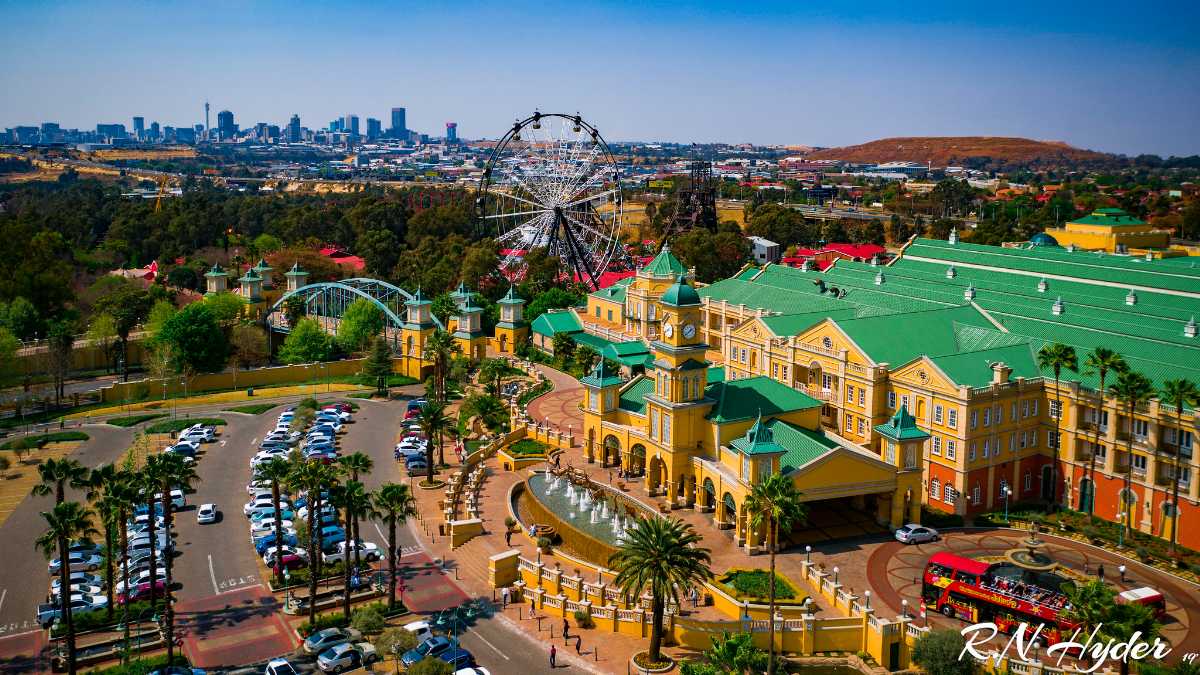Johannesburg North Attractions - The Facts
Johannesburg North Attractions - The Facts
Blog Article
Indicators on Johannesburg North Attractions You Should Know
Table of Contents6 Easy Facts About Johannesburg North Attractions ShownSome Known Incorrect Statements About Johannesburg North Attractions Johannesburg North Attractions Fundamentals ExplainedSome Ideas on Johannesburg North Attractions You Need To KnowThe Of Johannesburg North AttractionsFacts About Johannesburg North Attractions Revealed6 Simple Techniques For Johannesburg North Attractions
Nevertheless you must maintain safety and security in mind and travelers need to continue to be alert in any way times when in strange environments. Talk to the locals when you are in town to discover the location you are remaining in. Johannesburg North attractions. When on the street (this doesn't use to mall and various other secure environments) best basic suggestions is to try your ideal to resemble a neighborhood and to avoid displaying any type of riches
Little Known Questions About Johannesburg North Attractions.
Professor Revil Mason O. J. (Thomson, 1946) discovered the Witwatersrand's pre-colonial background. His archaeological work took off the 'em pty land' misconception, according to which the region was lacking human habitation prior to the arrival of European settlers. In his publications Prehistory of the Transvaal: A Document of Human Activity (1962) and Beginnings of Black People of Johannesburg and the Southern Western Central Transvaal Advertisement 3501880 (1986 ), Professor Mason demonstrated the level of social and economic development in the area before Europeans established foot here.

Some Known Details About Johannesburg North Attractions
In 1878, David Wardrop found gold in quartz capillaries at Zwartkop, north of Krugersdorp. In 1881, Stephanus Minnaar came across gold on the ranch Kromdraai, near the Cradle of Mankind.
In March 1886, an outcropping (soon to be called the Main Reef) was located, rather fortunately, on Gerhardus Oosthuizen's ranch Langlaagte. Some say that the Lancastrian coal miner George Pedestrian uncovered this reef. Another itinerant English prospector, George Harrison (that had actually formerly worked in Australian mines) obtained a prospecting licence in respect of Langlaagte in May 1886.
He decided to go on in a pursuit for greener fields, and disposed of his Langlaagte case for the princely sum of 10. Alas: below lay the richest goldfield ever before located. The discovery of this abundant auriferous coral reef provoked a gold thrill that signified completion of bucolic serenity in the southerly Transvaal.
It would certainly, within six years, become the largest town in southerly Africa. Within a decade, it would make the Z. A. R. until after that an anarchical and bankrupt little state the wealthiest nation in Africa. By the millenium, the Z. A. R. was to go beyond Russia, Australia and the USA of America to end up being the world's leading gold producer, creating greater than a quarter of the globe's gold.
Examine This Report on Johannesburg North Attractions
It was referred to as Ferreira's Camp, called after Colonel Ignatius Ferreira. He was a Boer adventurer upon whom the British authorities had actually bestowed the status of Companion of one of the most Identified Order of St Michael and St George (entitling him to the post-nominal letters C. M. G.) in appreciation for his role in the war that had deposed the Pedi king Sekhukhune in 1879.
2 various other camps were developed: Meyer's Camp on the farm Doornfontein, and Paarl Camp. The latter was nicknamed Afrikander Camp; many people from the Cape Colony settled there.

Little Known Facts About Johannesburg North Attractions.
This name acquired money by word of mouth, such that the State Secretary affirmed the name to the Mining Commissioner on 9 October 1886. Stands in the town were auctioned on 8 December 1886. While some stands were cost 10, others were knocked down for as low as sixpence.
2 years later on, these erven were to change hands for as much as 750 each. The tented camps diminished as a dorp of corrugated iron structures developed and expanded north of the mines located along the Main Reef Roadway. Locations such as Jeppe's Community (where working-class immigrants erected their homes) and Doornfontein (where the upscale brand-new 'Randlords' started to create their luxurious residences) were soon contributed to the ever-expanding map of the town.
The 5-Minute Rule for Johannesburg North Attractions
Besides the street names, there were no signs of Johannesburg description being situated in a Dutch-speaking nation. Years later on, C. W. Kearns O. J. (among the first boys enrolled at St John's University in 1898) would certainly recall: 'An unusual fact about Johannesburg was that, although it remained in the [Boer Republic], nearly everyone talked English and also the Government slaves attended to one in English, unless they were very first addressed in the Taal (or Reduced Dutch)'.
Britain had a rate of interest in ensuring ideal problems for gold production on the Witwatersrand, and that the gold was exported to London rather than Berlin a vital made all the more clamant by the Z. A. R.'s boosting toenadering with Germany. Mine proprietors got on an accident training course with President Kruger, whose plan of monopolistic giving ins (commonly provided to his cronies) avoided mining firms from procuring materials of products (particularly dynamite) and labour on their very own, cheaper terms
Johannesburg North Attractions Can Be Fun For Everyone
In 1890, the Volksraad had restricted the franchise business to white males that had actually stayed in the Z. A. R. for fourteen years or longer, hence disqualifying the majority of the immigrants (that occurred to be the significant factors to the fiscus). Frustration for the ballot was a simple pretext for advertising a various schedule; a lot of uitlanders regarded themselves as temporary site visitors and had no intent of staying in the Z.
Report this page